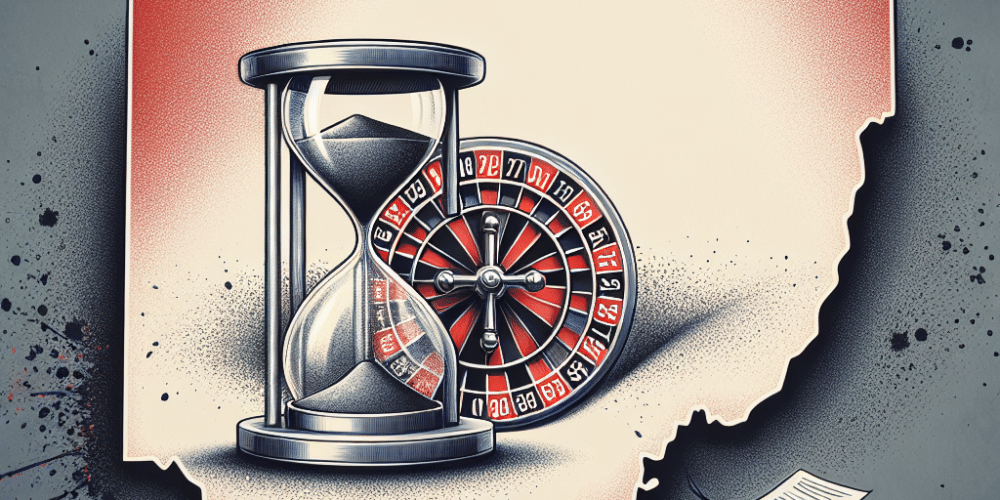Ohio’s aspirations to regulate iGaming are once again stalled, as the state continues to focus solely on its land-based casinos and online sports betting. The introduction of online casinos remains a contentious issue that has prevented any significant legislative progress.
As the current legislative session approaches its conclusion, Ohio House Speaker Matt Huffman confirmed that there would be no substantial advancements in the realm of online casino legislation. The existing legislative framework for gambling has not seen any momentum towards expansion, and there appears to be little appetite among lawmakers to change this status quo in the near future.
A significant barrier comes from Governor Mike DeWine’s office. DeWine remains skeptical about the merits of regulating online casino gambling, questioning whether the potential benefits would outweigh the associated risks. The governor’s cautious stance reflects broader concerns about the social and economic impact of expanding gambling operations online.
This hesitance was evident in the handling of House Bill 298 and Senate Bill 197. Both pieces of legislation aimed to introduce online gambling but faced immediate backlash. Opposition came from various quarters, including religious groups and public health advocates, who argued that the proposals were unethical and posed significant risks to society. These groups voiced concerns about the potential for increased gambling addiction and social harm.
Despite these obstacles, HB 298 and SB 197 have contributed valuable insights into the conversation on gambling regulation. The bills outlined potential licensing conditions and proposed a framework for the operation of online casinos, highlighting how such a system might function if ever implemented. However, the strong pushback and political hesitation signal that Ohio’s journey toward iGaming regulation is fraught with challenges.
The economic context further complicates the discussion. Ohio’s gambling industry, anchored by its established land-based casinos and burgeoning online sports betting market, remains robust. The current setup has generated significant revenue, and some argue that introducing online casinos could disrupt this balance. Proponents of the status quo suggest that the existing model already provides considerable economic benefits without the added risks associated with iGaming.
However, proponents of online casino legislation argue that the potential for economic growth should not be underestimated. Online casinos could attract a new demographic of players, drive additional tax revenue, and create jobs within the state. They assert that with careful regulation and robust consumer protections, the state could mitigate the potential downsides.
Opponents counter that the existing gambling infrastructure already meets consumer demand and generates substantial tax revenue. They warn that expanding into online casinos could lead to unforeseen social consequences, including increased gambling addiction and related social issues. This perspective resonates with conservative elements within the state, who prioritize social stability over economic experimentation.
The debate over online casinos in Ohio reflects a broader national conversation about the role of gambling in society. As more states explore the potential of iGaming, Ohio’s cautious approach highlights the complexities of balancing economic interests with social responsibility. While some states have embraced the digital transformation of gambling, Ohio remains hesitant, wary of the potential societal costs.
Looking ahead, the future of online casino legislation in Ohio is uncertain. The interplay of political, social, and economic factors will continue to shape the debate. While proponents remain hopeful that continued dialogue and legislative refinement could eventually pave the way for iGaming, opponents are equally determined to maintain the current landscape.
For now, Ohio’s gambling industry will continue to rely on its established channels while the question of online casinos lingers in legislative limbo. The state’s approach underscores the challenges inherent in navigating the rapidly evolving landscape of gambling regulation, where technological advancements and societal values often collide. Whether Ohio will eventually embrace online casinos remains to be seen, but for now, the status quo prevails.

David Harrison stands tall in gambling journalism, marrying his firsthand casino experiences with a deep understanding of betting psychology. His articles transform complex gambling jargon into engaging tales of strategy and chance, making the world of betting accessible and enjoyable. David’s knack for narrative extends beyond print, making him a sought-after speaker on gambling trends and future bets. In the realm of gambling, David is both a scholar and a storyteller, captivating readers and listeners alike.
















